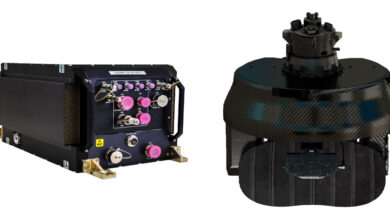The Future of Surveillance Systems: Trends and Innovations

By Sandeep Shah
Mumbai. Surveillance has emerged as a critical and controversial topic in recent years, with technological advancements and increasing privacy concerns at the forefront of public debate. From closed-circuit television (CCTV) cameras in public spaces to online tracking and social media monitoring, surveillance has become ubiquitous in our daily lives. However, as technology continues to advance at an unprecedented rate, the future of surveillance is likely to be characterized by even more sophisticated systems and techniques.
It is imperative accordingly to explore the potential benefits and risks of future surveillance technologies, and to consider how they can be implemented ethically and transparently. Moreover, as the use of surveillance continues to expand, there will be a pressing need to strike a balance between security and individual rights, and to ensure that surveillance systems are accountable to the public. An in-depth analysis of the future of surveillance is essential to inform policy-making, safeguard privacy, and promote the responsible use of emerging technologies.
Centralized Surveillance
One of the most significant trends in the future of surveillance is the centralization of surveillance data.
With the rise of big data analytics, surveillance data from various sources can be combined and analyzed in real-time to identify patterns and anomalies. This has led to the development of centralized surveillance systems that enable law enforcement agencies and other authorities to monitor vast amounts of data from a single location. While such systems can provide valuable insights into criminal activity and help to prevent and investigate crimes, there are also concerns about the potential misuse of such data.
Centralized surveillance systems can be vulnerable to hacking and data breaches, and there is a risk that the information gathered could be used for purposes other than those intended. Therefore, it is critical to establish robust security protocols and governance mechanisms to ensure that centralized surveillance systems are used responsibly and effectively.
Need Based Algorithms
As surveillance data continues to grow in volume and complexity, there is a growing need for more efficient and effective ways to process and analyze it.
One solution is the development of need-based algorithms that search only for the data that is required, thereby reducing the need for heavy infrastructure and computing power. By using these algorithms, surveillance systems can become more targeted and precise, and reduce the risk of false positives or unnecessary data collection. This not only makes surveillance more efficient and cost-effective, but it also helps to address privacy concerns by limiting the amount of data collected and stored. However, the implementation of the need-based algorithms raises important questions about how to determine what data is necessary, and who gets to make that decision. It is crucial to establish clear guidelines and oversight mechanisms to ensure responsibility as well as parameters of ethics.
Connected Surveillance
Connected surveillance is another trend that is likely to shape the future of surveillance.
This refers to the idea that surveillance would become a service, with multiple inputs for data available for hire and accessible across different clouds. For example, if someone needs to survey the area around them, they would be able to contact different providers who own data from CCTVs, analytics, traffic data, and other sources. This would allow for more comprehensive and integrated surveillance systems, with multiple stakeholders contributing to a shared pool of data.
However, this also raises concerns about privacy and security, as the sharing of data across different platforms and stakeholders could lead to breaches or misuse of information. To address these concerns, it will be essential to establish robust data governance frameworks and privacy regulations that safeguard individual rights and promote transparency and accountability in the use of connected surveillance systems.
Surveillance will be Independent of Device
With the proliferation of Internet of Things (IoT) devices and sensors in our environment, surveillance could become more ubiquitous and independent of specific devices. This means that data inputs for surveillance could come from a multitude of sources such as cameras, microphones, sensors, and even drones. Moreover, the data collected from these sources could be processed and analyzed in real-time by artificial intelligence (AI) systems, enabling more efficient and effective surveillance.
This could potentially improve public safety and security, but it also raises concerns about privacy and the potential for abuse of such technology. As with any technology, it is important to consider the potential benefits and risks before implementing it on a large scale.
Future of Privacy
As concerns over privacy continue to grow, the anonymization of data has emerged as a potential solution. Anonymization involves removing personal information from data sets, so that individuals cannot be identified. This approach can help to protect individual privacy while still allowing for data to be analyzed and used for research, business, and other purposes. In the context of surveillance, anonymization could be used to protect the identities of individuals captured by surveillance cameras, while still allowing for analysis of the data to identify patterns and trends.
While there are some challenges associated with anonymization, such as the risk of re-identification, it is an important step towards protecting privacy in the age of surveillance. As such, it is crucial to establish clear standards and guidelines for anonymization to ensure that it is done effectively and responsibly. With the growing use of surveillance technologies, the option of anonymizing data can give individuals greater control over their personal information and promote a more privacy-conscious society.
Note: The autor is Co-Founder and Managing Director of Optimized Electrotech, a company developing strategic and surveillance applications.





